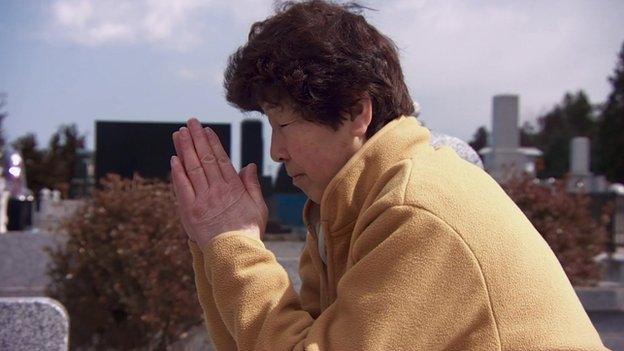Japan approves energy plan backing nuclear power
- Published
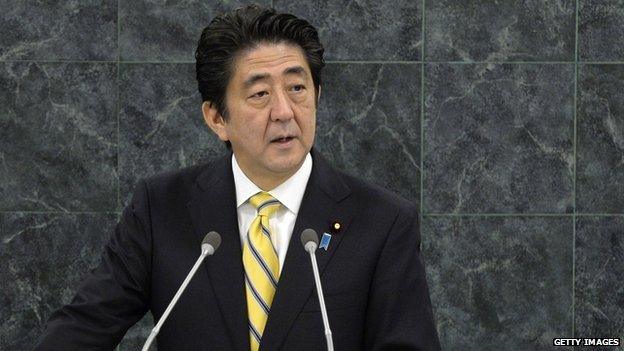
Mr Abe wants Japan's idled nuclear reactors to be switched back on
The Japanese government has approved an energy plan that backs the use of nuclear power, despite public anxiety after the Fukushima disaster.
The plan reverses an earlier decision to phase out nuclear power by a previous government.
It will set the stage for the government to restart some reactors, all of which are currently idled.
The move comes days after the first Fukushima evacuees returned to their homes inside the exclusion zone.
"We aim to opt for an energy supply system which is realistic, pragmatic and well balanced," Japanese Trade and Industry Minister Toshimitsu Motegi told reporters.
Under the plan, the government would proceed with reactivating nuclear power plants that had met tough regulatory standards, Kyodo News agency reported, while also working to reduce nuclear dependence as much as possible.
The plan did not specify Japan's future energy mix, but promised to increase its reliance on renewable energy.
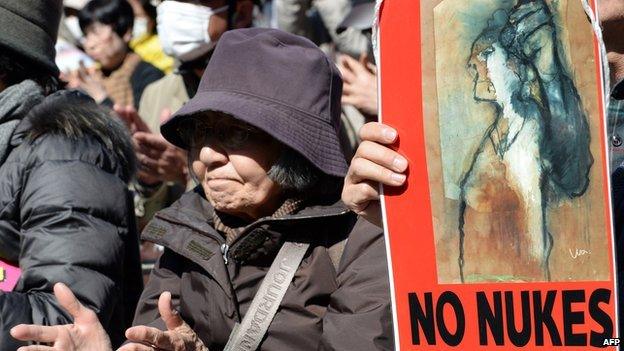
Many in Japan distrust the government's assurances that nuclear power is safe
The opposition Democratic Party of Japan, which was in power during the time of the 2011 tsunami and earthquake that triggered the Fukushima nuclear disaster, had promised to phase out nuclear power.
Until the Fukushima crisis, Japan had relied on nuclear energy for about 30% of its energy needs.
Prime Minister Shinzo Abe, who was elected in December 2012, has spent several months persuading lawmakers to back his stance.
The move is likely to prove unpopular with a wary public.
- Published18 November 2013
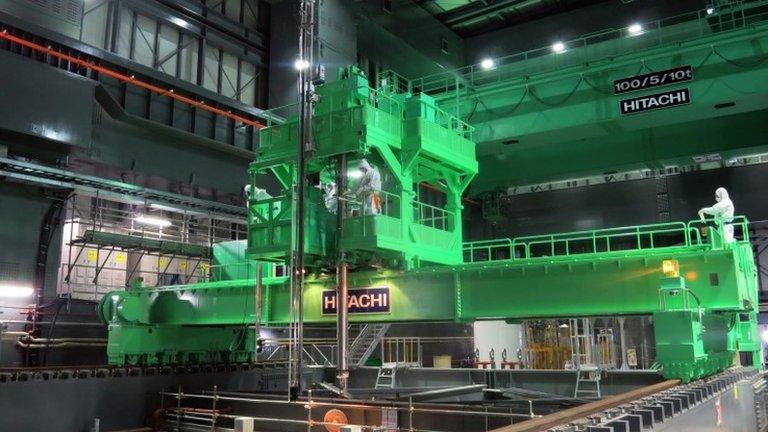
- Published15 September 2013
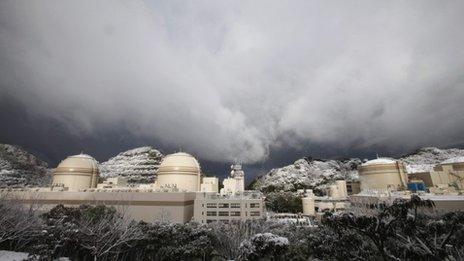
- Published11 March 2014
